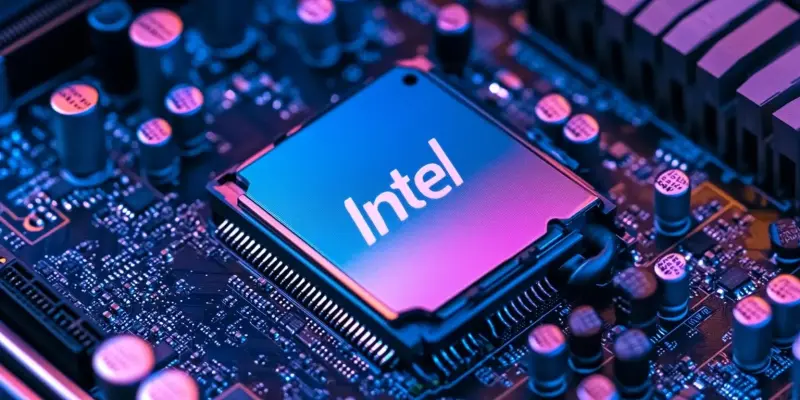Intel has been grappling with serious performance issues related to its Arrow Lake-S desktop CPUs, particularly following the release of the new “0x114” microcode update. This update was initially designed to resolve the significant performance degradation observed in consumer systems compared to Intel’s internal tests. However, recent benchmarks, especially those conducted by @CapFrameX, have revealed that the update has failed to address the critical issues successfully. The disappointing results have caused considerable concern among consumers and industry experts, casting doubts on Intel’s ability to deliver on its performance promises.
One of the most glaring indicators of these performance challenges is the substantial decline in gaming performance. Specifically, tests on the Core Ultra 9 285K running Cyberpunk 2077 showed an 18% drop in average FPS. When combined with an earlier performance drop, these figures align poorly with Intel’s previous assurances of achieving a “double-digit” performance improvement. Moreover, this drop in gaming performance has been coupled with a 14% increase in memory latency, further exacerbating the overall performance concerns. Consumers who rely on these processors for high-end gaming and other intensive tasks find themselves questioning the reliability and efficiency of Intel’s latest offerings.
Adding to these concerns are ongoing thermal instability issues within the Raptor Lake Refresh series. This persistent problem indicates that Intel may need to reassess its strategy in the desktop CPU market to meet consumer expectations and industry standards. The overarching trend suggests that Intel has struggled to find effective solutions to mitigate these performance problems. As a result, both consumers and industry observers are left uncertain about the future direction and reliability of Intel’s desktop CPUs.
The article emphasizes the necessity of further evidence to confirm whether the observed benchmarks are consistent across different systems. Despite the disappointing results, Intel has announced plans to address these ongoing issues in an upcoming media briefing around CES 2025. During this event, Intel is expected to discuss the performance of the Core Ultra 200S series and outline its strategy for improving the stability and performance of its products.
In summary, Intel’s Arrow Lake-S CPUs continue to face notable performance challenges, and the latest microcode update has not provided the expected improvements. This ongoing issue necessitates a re-evaluation of Intel’s approach, urging the company to take concrete steps to meet market demands and consumer expectations more effectively. The tech community is eagerly awaiting Intel’s next move, hoping for a resolution that will restore confidence in the brand and its products.

